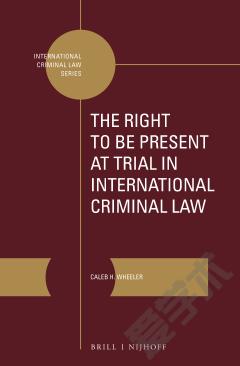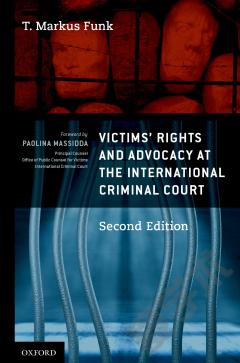The Right to Be Present at Trial in International Criminal Law
International criminal law considers the accusedâs right to be present at trial to be a key component of his or her right to a fair trial at international and internationalised criminal courts and tribunals. The central research question this thesis explores is: what does the accusedâs right to be present at trial mean in international criminal law and are the accused at international and internationalised criminal courts and tribunals receiving the benefits of its protection? This thesis answers that question in eight substantive chapters examining a variety of issues relating to the right to be present at trial. In answering the research question this thesis makes four different contributions to knowledge. First, it brings together the rules and practices of all of the international and internationalised criminal courts and tribunals and provides analysis about how each one treats the right to be present at trial. Second, it challenges existing assumptions about how different courts and tribunals protect the right to be present at trial and show that even those courts and tribunals that are thought to emphasise the right also allow trial to continue in the accusedâs absence under some circumstances. Third, it takes a more nuanced approach to trial absences by breaking absence into four categories and examining how the differences in the type of absence may affect the right to be present. Finally, it considers the procedures of the international and internationalised criminal courts and tribunals established since the introduction of the Special Tribunal for Lebanonâs Statute and finds that they generally take a more flexible approach to the accusedâs right to be present. This thesis concludes that international criminal law provides the accused with a qualified right to be present at trial. The right confers on the accused the choice to attend trial and is coupled with a duty imposed on the court or tribunal attempting to conduct the trial whereby it cannot prevent the accused from attending trial if he or she so desires. The right to be present can be voluntarily waived by the accused if he or she has received notice sufficient to make an informed decision about whether he or she wants to appear. This approach creates a balance between respecting the accusedâs right to be present while also allowing trial to continue if the accused does not wish to participate.
{{comment.content}}








 京公网安备 11010802027623号
京公网安备 11010802027623号